Prime Minister`s Special Envoy on Climate Change, Saber Hossain Chowdhury, led the least developed countries (LDCs) at the COP27 held in Egypt last year.
Saber was a founding member of the global group " Parliamentarians’ Call for a Fossil Fuel Free Future," which brought together around 1,000 legislators from all over the world to advocate for the elimination of fossil fuel consumption.
In an exclusive interview with The Report`s Senior Reporter Mehedi Al Amin, he discussed the upcoming UN climate summit, better known as COP28, which will be held in Dubai from November 30 to December 12.
Also, the chairman of the parliamentary panel on climate, Saber is concerned about how things are worsening due to climate issues.
The Report: There has been a debate that for the first time a heavily fossil fuel-dependent nation would host the Global Climate Conference. What do you think?
Saber Chowdhury: The UAE is largely dependent on fossil fuels. The president of the summit is also a minister of the host country. I told him that “you are from a country that is fossil fuel-dependent and the spirit of the summit is against fossil fuel. This is like setting a fox to keep one`s geese.”
With a smirk, he stated, "Some 27 UN climate summits have been held so far, and not a single host nation has supported the use of fossil fuels. Are you happy with whatever has been achieved yet?
“This is the first time a representative from this lobby (a nation dependent on fossil fuels) has appeared as a host nation. Please see what we can do (regarding the control over fossil fuel),” he told me.
My notions and expectations have changed significantly since his response. He seems to be cordial. There`s nothing to be concerned about, in my opinion.
Comparing the achievements between the upcoming summit and the previous 27 COPs will determine his eligibility and efforts. I hope there would be more progress on climate issues in COP28.
The Report: Which issues will dominate the agenda this year?
Saber Chowdhury: We have to think about what happened globally in the period between the two COPs (the previous and the next one). This year, July is the hottest month on Earth. Global warming will become more intense. It was stated that future effects of climate change will be felt. This is the current context.
It`s our last opportunity. Anything we do later won`t be sufficient if it can`t be used now.
NDCs (national carbon emission reduction targets) must be increased if global temperature increases from pre-industrial times to the end of 2100 are to be limited to 1.5 degrees Celsius.
This (the COP summit) is a place of action. The best adaptation is mitigation. In the last Sharm El-Sheikh conference, efforts were made to raise the target of limiting temperature rise to 2 degrees Celsius. According to the Intergovernmental Panel on Climate Change (IPCC) Sixth Review Report, if the global temperature rises above 1.5 degrees Celsius, development can no longer be sustained. That`s a big statement.
All countries have accepted the report. So, they cannot take an opposite position after coming to the conference and if so, it will be considered as a double standard role.
There are no procedural rules. The rules of procedure have been pending for 27 long years. It was supposed to happen in the first COP. It was written in the rules that if everyone could not agree, the decision would be made by voting. Now, it has to be based on consensus only.
Consensus simply means reaching a general agreement on all points (words, proposals and even punctuations) of any issue within a group.
Now, where do you agree? Where there is no goal, where there is no challenge for any country, no matter how far we go in this policy, we are not heading for a solution. We are just keeping the process alive. We are not getting whatever is expected from COP. Our situation is getting more difficult day by day.
We should agree with the consensus as we disagreed on the rules of procedure. The COP president must say the consensus should follow the scientific process. The IPCC report was accepted by all. It is important in terms of negotiation strategy. We will raise the procedural rules from Bangladesh.
The Report: The rich nations made a significant pledge to channel $100 billion a year to less wealthy nations by 2020 to help them adapt to climate change and mitigate rises in temperature. However, they have been violating the commitment. What strategy can be adopted in this regard?
Saber Chowdhury: In the last edition of COP, I led the LDC. But now, our position on financing, 1.5 degrees Celsius and what will happen in loss and damage, will be highlighted by the LDCs in the next COP.
First of all, developed countries say they gave $82 billion last year out of the pledged $100 billion. Other reports suggested it was not more than $8-9 billion. ODA (official development assistance -- a government aid that promotes and specifically targets the economic development and welfare of developing countries) recipient continues to be considered climate finance. It`s not supposed to happen. This $100 billion is new and additional. If we cannot fix this definition, we will not be able to advance in the discussion. Second, new targets must be set in 2025.
Bangladesh alone is spending $8-9 billion on adaptation. Around 70 countries are moving towards large-scale adaptation. Here`s $700 billion going into a trillion. What is being offered there now is nothing.
Developed countries are talking about financing from both the public and private sectors. We said it must be publicly funded. Otherwise, the countries will get stuck in the debt net by taking loans from private or multinational financial institutions.
Half the climate finance is supposed to go to mitigation and the rest to adaptation. It also has no reflection.
The Report: The much-awaited Loss and Damage Fund was established last year. After agreeing to the creation of the fund, Canada then said that China must also finance the fund since the latter is currently the largest carbon emitter. On the other hand, China said that it would not do so. So, what can we expect from the COP28 on this front?
Saber Chowdhury: The fund has been established. It`s pretty much a political decision. Now comes the issue of who will manage the fund. There are proposals from developed countries that the fund should be managed by the World Bank. We can consider the proposal but transparency and independence in governance must be ensured regarding this. The World Bank should not be influenced by any country.
So, who will give how much money to this fund? Everyone`s responsibility is not the same. There are differences in capabilities. Everyone`s responsibility is different.
The Paris conference was a success because the US, the EU and China came forward together with the same stance. If the two countries and the bloc reach a consensus, something good happens. This is where climate diplomacy remains. We have the opportunity to play a big role in bringing them together.
Bangladesh is at the very forefront of dealing with climate impacts. What is happening in Bangladesh today will also occur in developed countries. We will not stay in one place. If we can keep Bangladesh alive, and succeed in adaptation, other countries will reap benefits too. The contribution they make is for their own future and we have to keep that in mind while placing our issues.
When you are assisting us, you are actually doing so for self-interest. This is because the world is now a Global Village. We may have understood that point. By helping us, they are ensuring their interest.
The Report: We have watched the role of Parliamentarians’ Call for a Fossil Fuel Free Future in COP27. What is it going to do this time?
Saber Chowdhury: The world is still 80% dependent on fossil fuels. We will bring such issues. The UN secretary-general, too, echoed our sentiment. He said, “We have to move away from fossil fuels by 2030.”
And we are saying that there can be no new investment. This is a big achievement for us.
A US senator expressed solidarity with us last time. This time around, a senator from Canada has joined us. It is not only the Global South (developing countries) but we are also getting support from the Global North (developed world).
We (the global platform) have nearly 1,000 members. We can also give a new form to the concept of international discourse, which is more important than numbers.
If we want to understand a problem, we have to go to its root. So far, we have spoken about symptoms. Now we have to turn our attention to the disease. And the disease is fossil fuels and the cure is to stop using these. Prevention is better than cure.
The UN secretary-general will say at COP28 that the developed world needs to get off fossil fuels by 2030. Not even a new plant. If this is the case, there is no need to think about a global temperature increase of 1.5 degrees Celsius.
Bangladesh is now a developing country. We should not be considered the same as the developed ones. Our deadline maybe 2040 because we also have the right to development. We don`t want to spoil it. These issues will be among the activities of our organization at this conference.



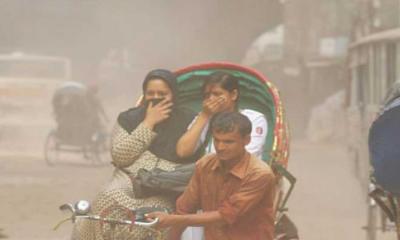
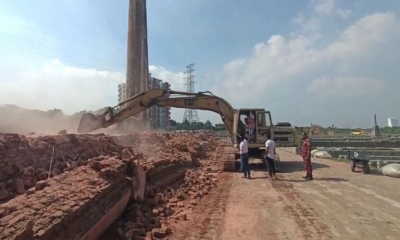
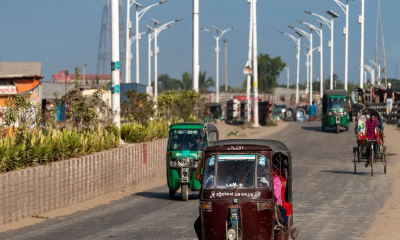
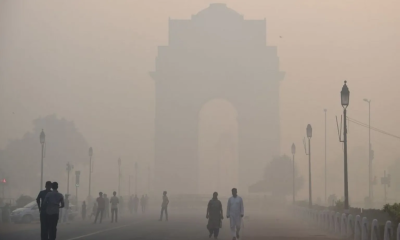
-20251226051932.jpeg)
-20251222051606.jpeg)
-20260225072312.webp)







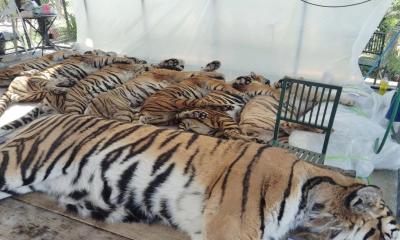



-20260224075258.webp)













-20260219054530.webp)
-20260218060047.jpeg)
